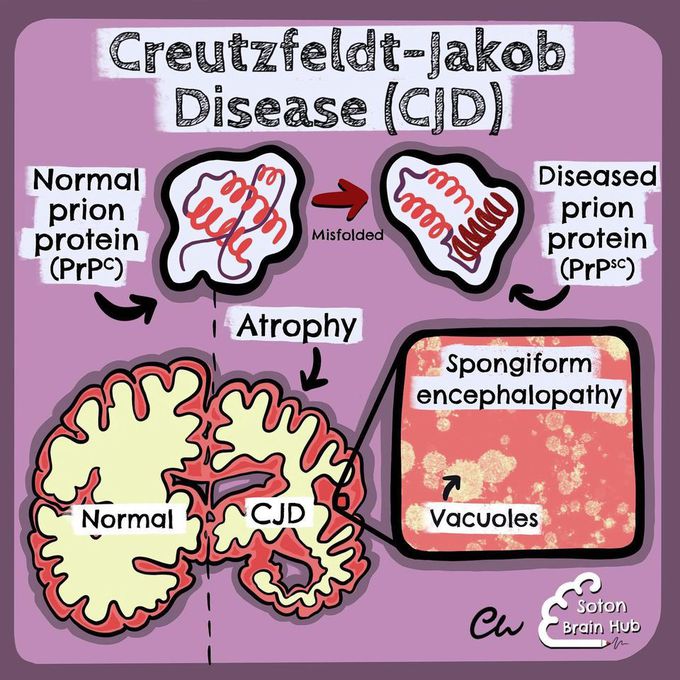


Creutzfeldt-Jakob
Creutzfeldt-Jakob disease (CJD) is a rare and progressive neurodegenerative disease affecting the brain and central nervous system. CJD belongs to the family of transmissible spongiform encephalopathies (TSEs), which also include mad cow disease (bovine spongiform encephalopathy) in animals and Kuru disease in humans. This disease is caused by an abnormal protein called a prion that accumulates in the brain and forms insoluble plaques that damage and destroy brain cells. The exact cause of the formation of these abnormal proteins is still unknown, but it is believed that it may be caused by an inherited genetic mutation, exposure to contaminated tissues or products, or simply by the spontaneous formation of abnormal prions in the brain. Symptoms of the disease include memory difficulties, balance and coordination problems, mood changes, speech and vision problems, muscle spasms and general deterioration of brain function. The disease progresses rapidly and can lead to death within months. There is no cure for CJD, and treatment focuses on symptom management. In some cases, drug therapy may be used to control agitation, anxiety and other psychiatric symptoms. Physical therapy may be used to maintain muscle strength and improve balance and coordination. Because CJD is caused by an abnormal protein and can be transmitted through exposure to contaminated tissues or products, prevention of the disease focuses on reducing the risk of exposure. This may include removing potentially contaminated animal tissues from the food chain and adopting strict sterilization procedures in medical facilities.

